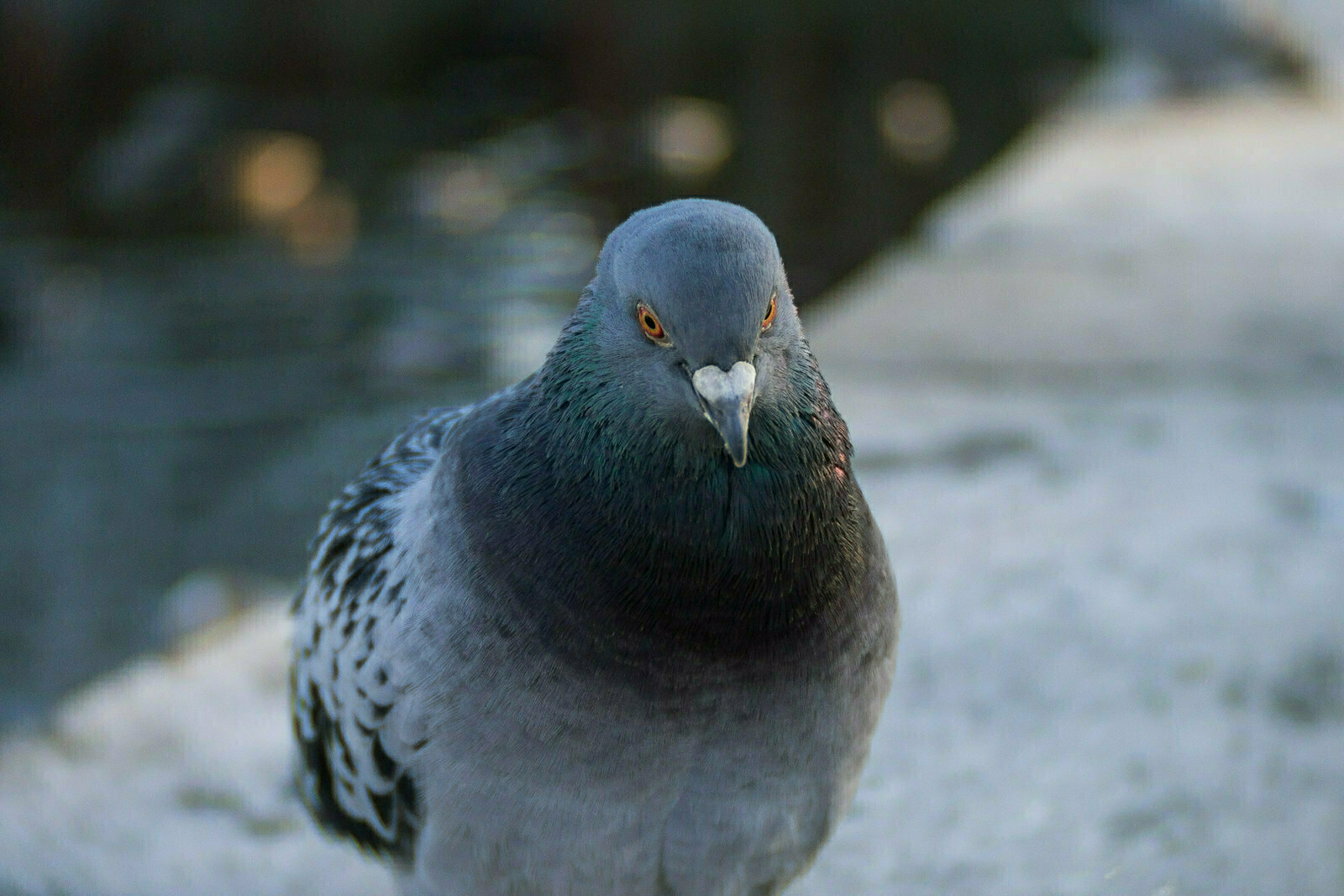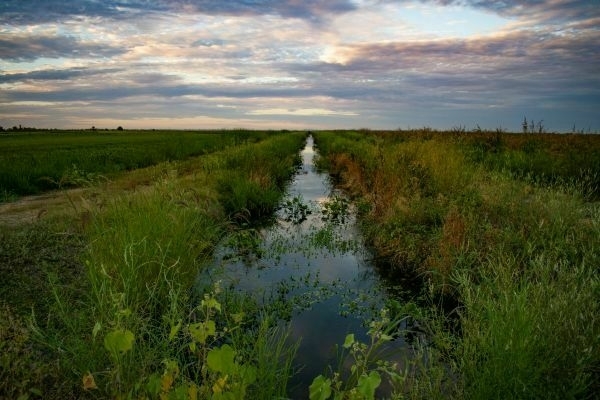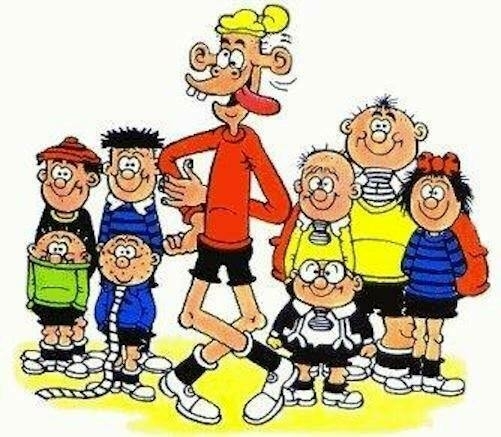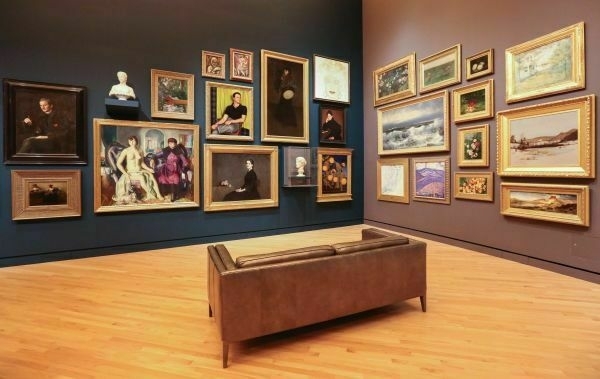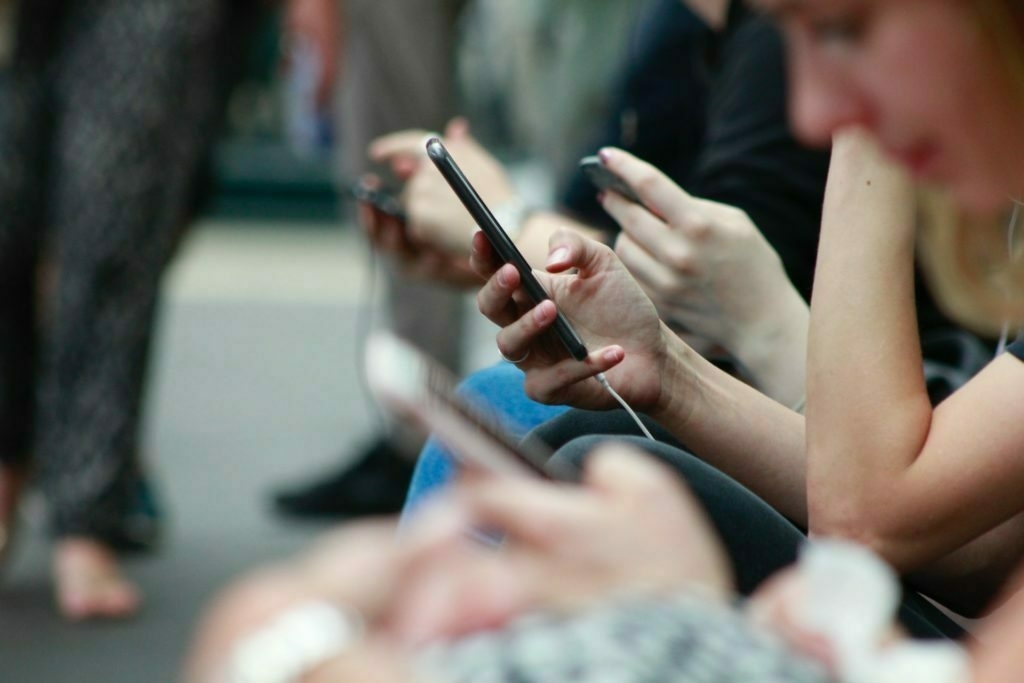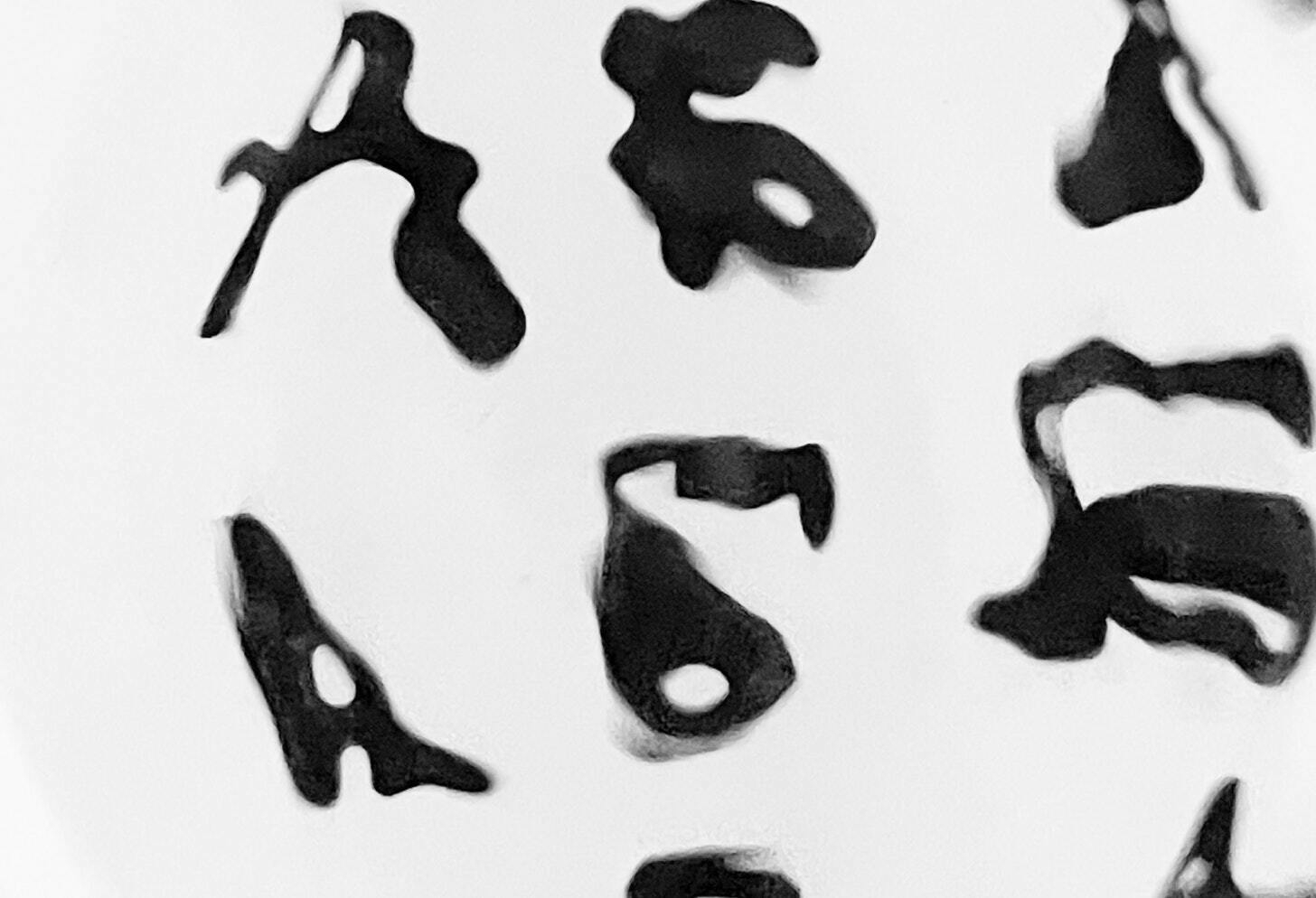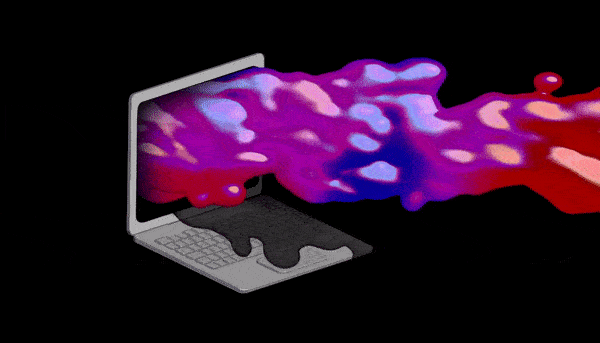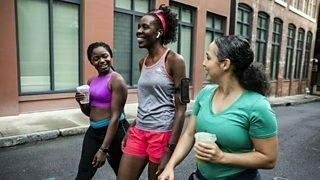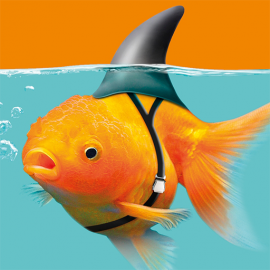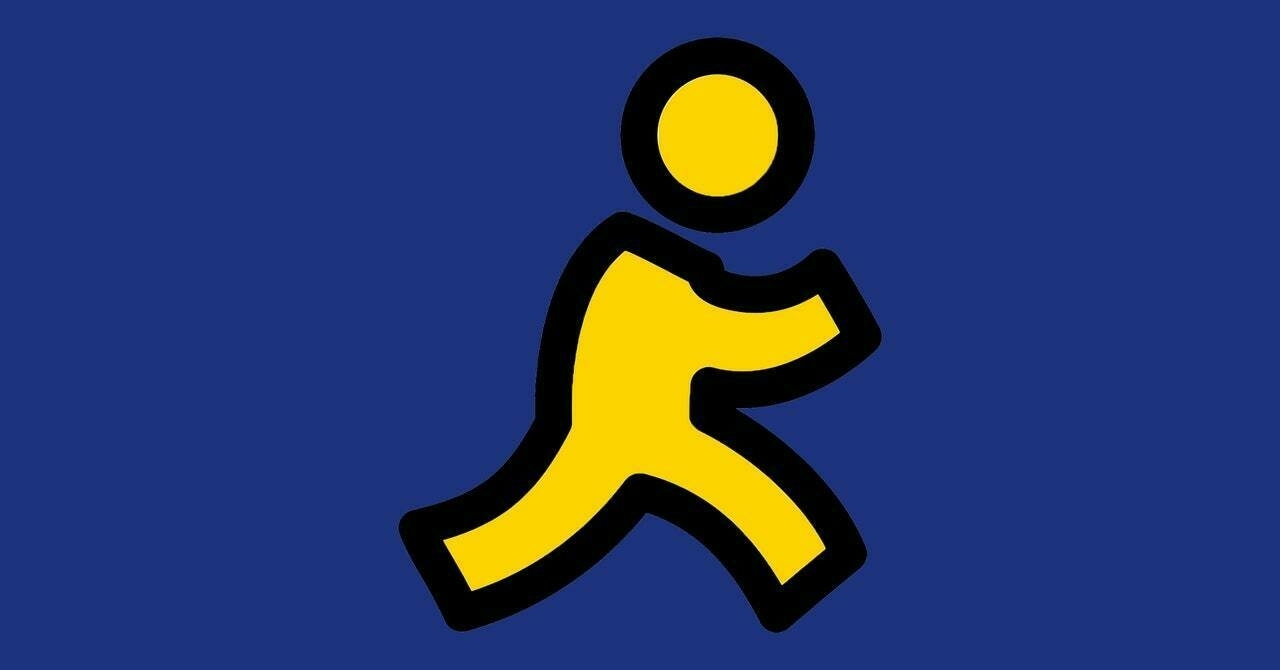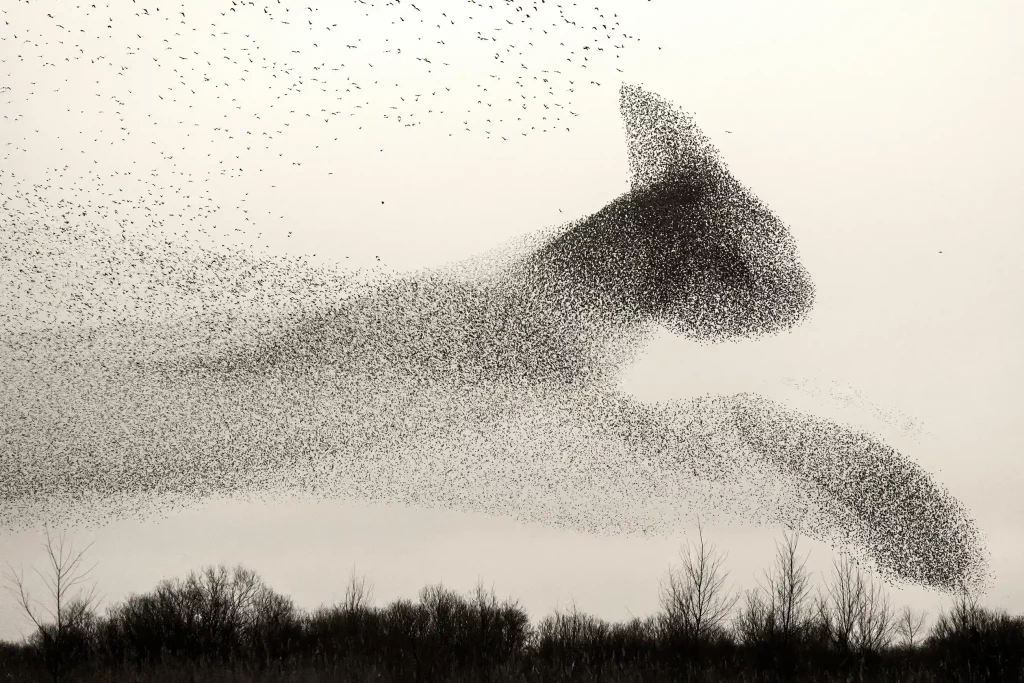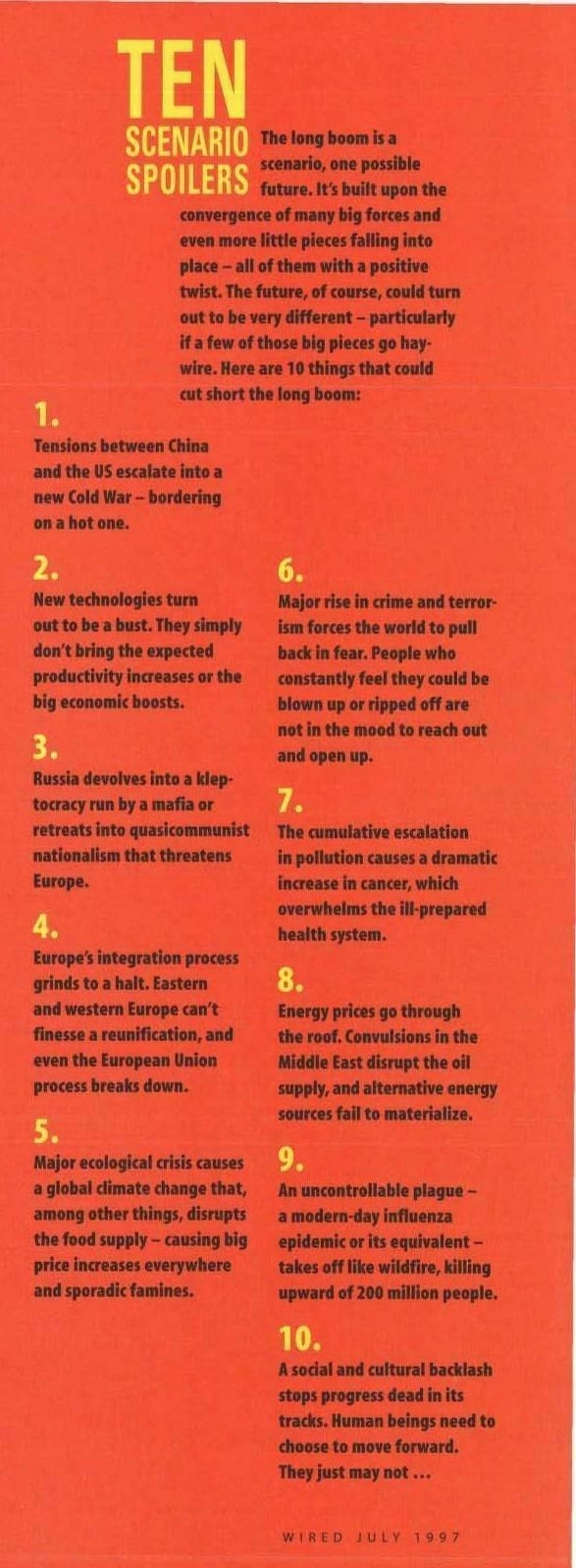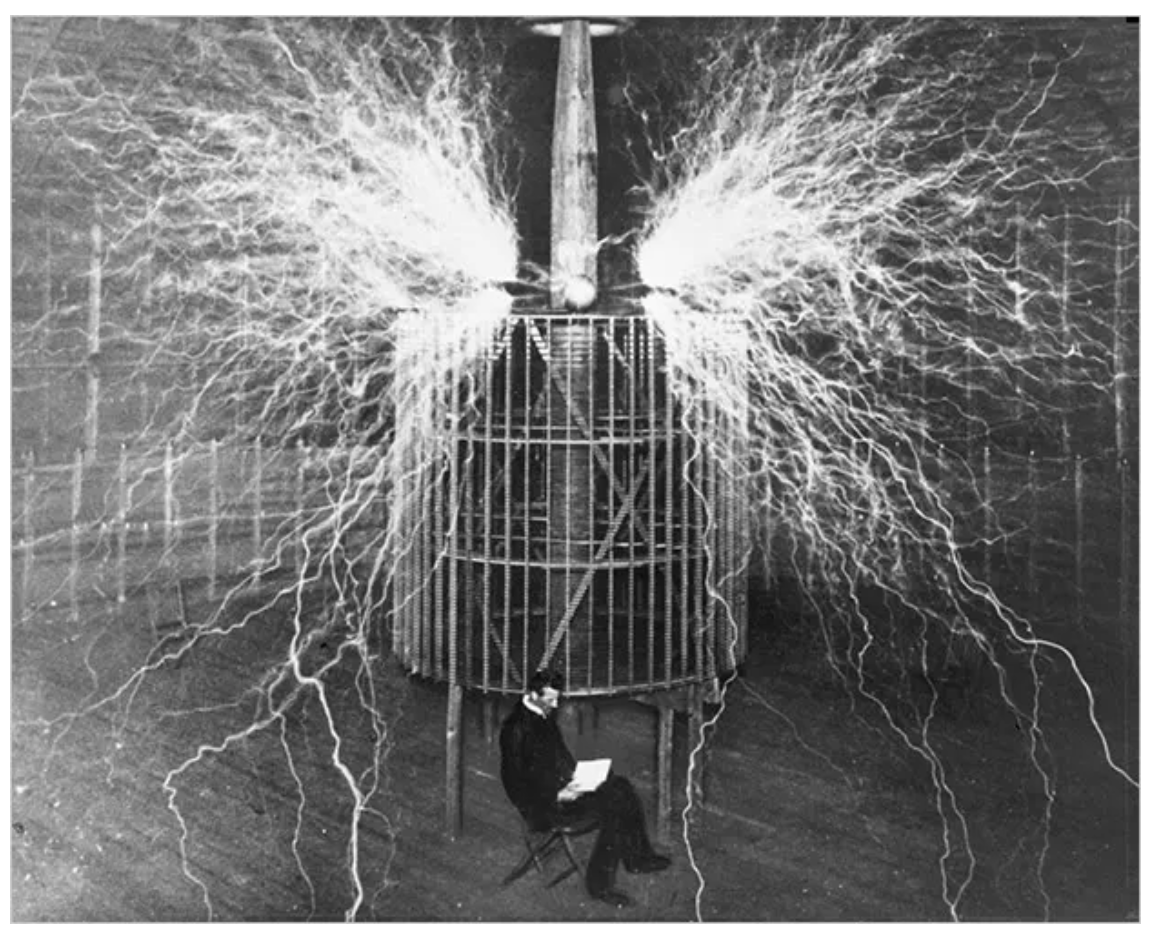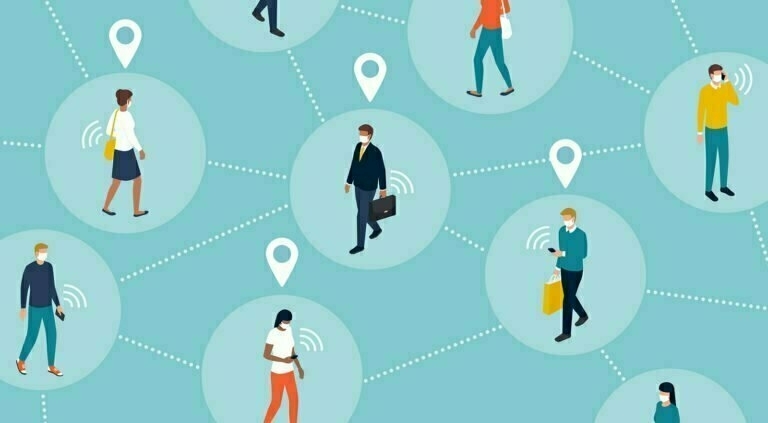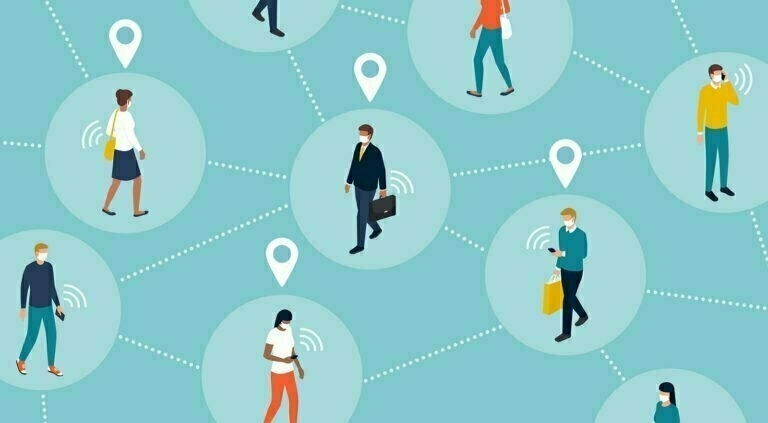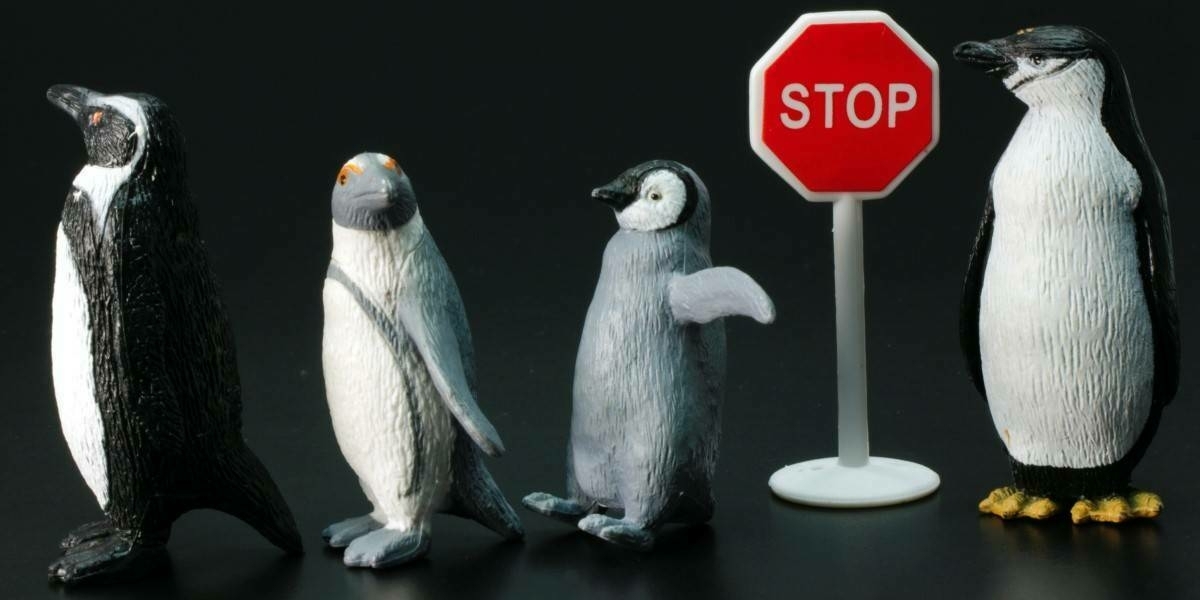Audrey Watters says goodbye to EdTech
Sadly, EdTech, the field that I used to feel part of, is never going to change, so this post from Audrey Watters was sadly inevitable. Anything that can be commodified will be commodified, it would seem.
Thanks Audrey, you’re awesome. I hope you find solace and energy in what you decide to do next.
I probably do have a wee bit more to say about ed-tech — the "good riddance" part — but I don't feel like posting it on Hack Education. I'll write about it here — therapeutically, I reckon. But I don't really want to continue to churn out criticism of the field/industry/discipline. Sufficed to say: folks will bend over backwards to justify the most fucked-up tools and the most oppressive educational practices and technologies. Some folks will say yes, the technology is bad — if we just had better technology then everything'd be okay. Others will say that it's our educational practices that suck — if we just had better pedagogies, then everything technological would fall into place. Both camps still insist that the future is "digital," and as such, are trapped in a story that will never get them to "better" because the foundations will always be rotten. And so few people in ed-tech, so fixated on their fantasies about the future, want to talk about that.Source: Goodbye Ed-tech, and Good Riddance | Audrey Watters
Getting out of a rut
I didn’t send out a Thought Shrapnel newsletter at the end of May as I’d hardly posted here during the month. There was no particular reason I could fathom for this. I guess I just got stuck in a rut of not-writing-here.
As David Cain points out in this post, ruts are often of our own creation and happen when we relate to a ‘dip’ in mood, luck, or progress. Happily, I’m back posting here and I’m in the opposite of a rut when it comes to exercise!
Ruts can be years long – that near-decade in which you didn’t touch the piano at all — or just a few days – you ordered out Tuesday instead of cooking, did it again Wednesday, and then again Thursday. Whatever the duration, ruts are temporary dips in our apparent ability to do a thing that’s important to us.Source: The Rut Principle | RaptitudeWhat I’ve noticed about my ruts is that they are mostly my own creation. Something external precipitates them, and something internal sustains them. Bad luck and bad weather are unavoidable, but a long rut can begin, and persist, even when the bad weather itself only lasted a day.
My theory is that ruts are what happen when you experience a dip – in mood, in luck, in progress – and you respond to it in a certain very human way: by doing something that makes you more prone to such dips. A simple example is the common sleep-caffeine spiral. You have a bad sleep for some reason (there was a party next door, or you saw a mouse in the cellar) and the next day you feel tired, and when you feel tired you sometimes have an afternoon coffee. This makes you more prone to more bad sleeps, which makes you more prone to afternoon coffees, and so on. You responded to the dip by doing something that creates more dips. All of this feels perfectly natural as it is happening.
Yes, parenting matters
Parenting is the hardest job I have ever had. It never stops, and I seldom think I’m doing a good job at it.
That’s why it can be comforting to see ‘scientific studies’ indicate that it doesn’t really matter how you parent, in the long-run. The trouble is, as this article shows, that’s not actually true.
We can’t experimentally reassign children to different parents — we’re not monsters, and please don’t call to offer us your teenager — but sometimes real life does that anyway. Here’s an example: some Korean adoptees were assigned to American adopters by a queueing system which was essentially random. So there was no correlation between adoptees’ and parents’ genes. Yet, adoptees assigned to better educated families became significantly better educated themselves. Adopters made a difference in other ways too: for instance, mothers who drank were about 20% more likely to have an adoptive child who drank. This can’t be genetics. It must be something about the environment these parents provided. Other adoption studies reach similar conclusions.Source: No wait stop it matters how you raise your kids | Wyclif’s DustMore evidence comes from the grim events of death and divorce. If your parent dies while you are very young, you end up less like that parent, in terms of education, than otherwise. Again, that can’t be genetics. And children of parents who divorce become more like the parent they stay with. In other words, when parents spend time with their children, their behaviours and values rub off.
[…]
The bottom line is this: how much and what you say to your child from their first few days literally carves new paths in their brain. We know this from research on speech development. When mothers responded to their babies’ cues with the most basic vocalisations, they accelerated their children’s language development. So go ahead and babble along with your toddler.
EaaS : Employee as a Service
This is humorous, but also we should remind ourselves that bosses need workers, but workers don't need bosses 🤘

Source: EaaS : ProgrammerHumor
'Slack' and work
I’m composing this having done about 19 paid hours of work this week. I’ve also contributed to Open Source projects, written here, done some housework, parenting, and various other things.
I don’t define myself by paid work. I can’t really even properly tell you what I ‘do’ for a ‘job’, to be honest.
According to Bertrand Russell, this is all well and good. As Andrew Curry notes in this post, we should be aiming for about 60% capacity at any given time. I usually end up averaging between 20 and 25 hours per week, so it looks like I’m doing OK…
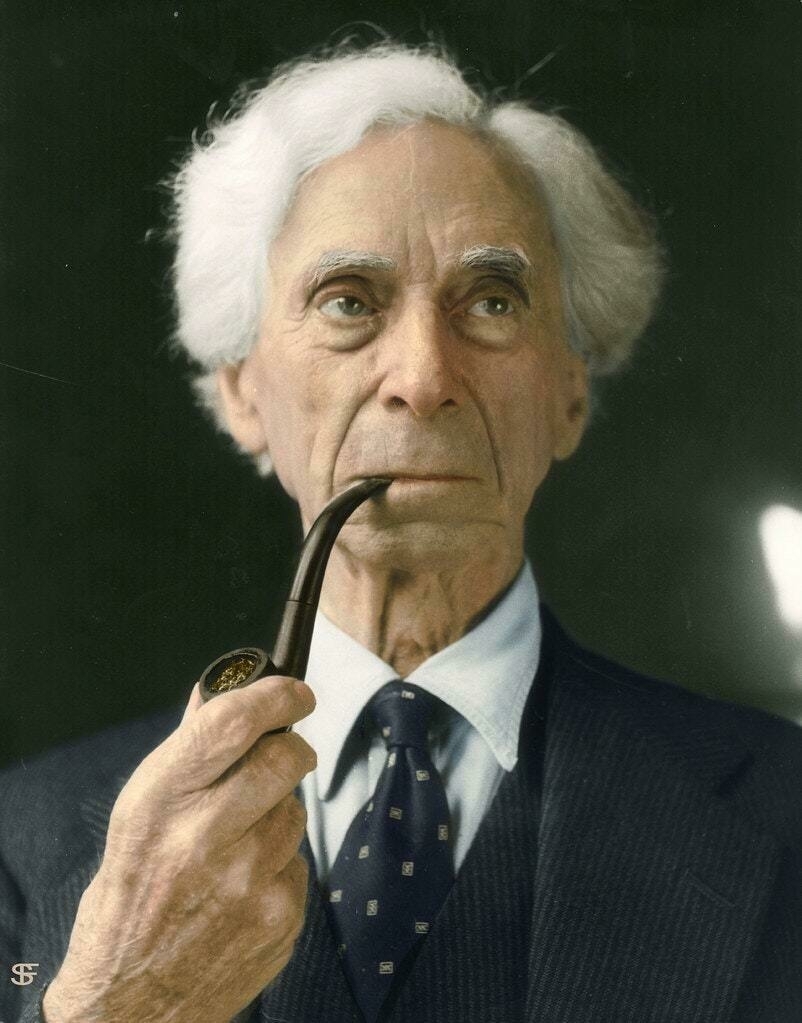
One of the key parallels that’s useful to draw here is between the idea of working less and ‘slack’. Slack is a difficult concept to pin down, but can exist in forms from queueing theory to buffer states. Working fewer hours than the current default 40-hour week is probably what most people do already, and it is also probably likely to move our slack-meter to a more optimal level.Source: 10 June 2022. Work | Dystopia | Just Two ThingsRunning with significant slack is often more efficient than running systems at high capacity. If you’re mathematically minded, Erik Bern simulates this via some code in the queueing theory link above, but G Gordon Worley III…gives a simpler explanation:
If you work with distributed systems, by which I mean any system that must pass information between multiple, tightly integrated subsystems, there is a well understood concept of maximum sustainable load and we know that number to be roughly 60% of maximum possible load for all systems.Allowing flexibility and time into our systems so that we can sit idle is not an admission of defeat, but instead has the potential to be optimal in many circumstances.This property will hold for basically anything that looks sufficiently like a distributed system. Thus the “operate at 60% capacity” rule of thumb will maximize throughput in lots of scenarios: assembly lines, service-oriented architecture software, coordinated work within any organization, an individual’s work, and perhaps most surprisingly an individual’s mind-body.
“Slack” is a decent way of putting this, but we can be pretty precise and say you need ~40% slack to optimize throughput: more and you tip into being “lazy”, less and you become “overworked".
I’m not sure how many working hours a week the dogma “operate at 60% capacity” translates to, but Bertrand Russell thought it might be twenty.
Art gallery mode
I love this post by David Cain so much. He talks about how every weekend during the summer he goes on a bike ride. Using an app to randomise his destination, he always finds something worth discovering. Why? Because he’s in what he calls ‘art gallery mode’.
To select a destination, I use an obscure app called Randonautica, which creates an X-marker somewhere on a map of the city. The app’s “About” section says it chooses this location through “theoretical mind-matter interaction paired with quantum entropy to test the strange entanglement of consciousness with observable reality.” It says the app’s users, when they arrive at their prescribed locations, often find “serendipitous experiences that seemingly align with their thoughts.”Source: How to Get the Magic Back | Raptitude[…]
The first time it sent me to a creekside clearing, where I saw a strange black glob in the water that turned out to be a mass of tadpoles. Another time it sent me to a gravel back lane near where I used to live, at a spot where someone had written “DAD!” on the fence in some kind of white resin. Another day it took me to a book-exchange box containing only children’s books and Stephen King’s Tommyknockers.
Wherever it sends you, there’s always something there that seems charged with a small amount of cosmic significance, even if it’s just a particularly charismatic patch of dappled sunlight, an abandoned shopping list with unusual items on it, or some other superordinary sight akin to the twirling plastic bag in American Beauty.
The trick here is that there’s always something significant, poignant, or poetic everywhere you look, if your mind is in that certain mode – so rare for adults — of just looking at what’s there, without reflexively evaluating or explaining the scene. A mystery co-ordinate in an unfamiliar neighborhood gives you few preconceptions about what you’re going to find there, so the mind naturally flips into this receptive, curious state that’s so natural for children.
I sometimes call this state “art gallery mode,” because of a trick I learned from an art history major. We were at the Metropolitan Museum of Art in New York, browsing famous abstract paintings by Pollock, Kandinsky, Mondrian, and other artists whose swirls, rectangles, and blobs are regarded as masterpieces.
The new digital divide
We’re already at the stage where most people in the developed world have a device that can access the internet in their pocket. Many families have multiple devices in their house that can access the internet. We’re getting to the stage where that’s starting to be the case in developing countries.
So the new digital divide? How we use the internet. I think there’s a lot to unpack here, especially as we live in unequal societies dominated by hyper-capitalism. It would be easy to victim blame, but I know from experience that when I’m burned out, all I want to do is stare and scroll at my phone…
In his seminar, Moro referred to the socio-economic divide based on how we use the internet as the second digital divide, in contrast to the original digital divide which was based on access to the internet.Source: The Digital Divide in How We Use the Internet | Irving Wladawsky-BergerGetting online in the 1990s required a personal computer and an account with a service provider, and e-commerce transactions required a credit card and bank account. As our economy was becoming increasingly digital, major new inequalities were now arising because so many around the world could neither afford a PC or an internet account and had no bank relationship or credit card. The reach and connectivity we were all so excited about in this initial phase of the internet era was in reality not so inclusive. While the internet was truly empowering for those with the means to use it, it led to a growing digital divide both within countries and across the world. The internet was ushering a global digital revolution, but it was disconcerting to have a global digital revolution that left out the majority of the world’s population.
This picture started to change in the 2000s. Continuing technology advances were now bringing the empowerment benefits of the digital revolution to a majority of the planet’s population. Mobile phones and wireless internet access went from a luxury to a necessity that most everyone could now afford, initially in advanced economies, and later in most of the rest of the world. We were transitioning from the connected economy of PCs, browsers and web servers to an increasingly hyperconnected digital economy of ubiquitous, powerful and inexpensive mobile devices, cloud-based apps, and broadband wireless networks.
While the original internet access gap is now minimal in developed economies, Moro and his collaborators found that a digital usage gap has now emerged, representing the distinct uses of the internet by different socio-economic groups based primarily on their income and educational status.
[…]
The study found quantitative evidence of a significant digital divide in internet usage between two socio-economic groups, each with different income and educational attainment. In principle, all individuals had access to the same internet. But, the study found that each group generally accessed its own distinct version of the internet, and their socio-economic behavior was thus influenced by the fairly different services and information that they were exposed to. By analyzing mobile traffic flows, the study identified the key services that each group accessed:
“The digital usage gap is so profound between low- and high-income or low- or high-education areas that it can be used to clearly distinguish between them or even identify the relative composition of these groups in a given area,” wrote the authors. “High-income areas or those with higher education attainability show a more pronounced utilization of mobile devices to consume news, exchange e-mails, search for information or listen to music. At the same time, they display a reduced use of some social media platforms or video-streaming services.
- Higher income & education demographics - Information-seeking traffic predominates, e.g., news, mail, search; Instagram, WhatsApp and Twitter are the dominant social media apps; games like Clash of Clans are the most widely used, …
- Lower income & education demographics - Entertainment traffic predominates, e.g., video-streaming, gaming, adult services; Facebook and Snapchat are the dominant social media apps; games like Candy Crush are the most widely used, …
Image source: Robin Worrall
Optimising for feelings, ceding control to the individual
It would be easy to dismiss this as the musings of a small company before they get to scale. However, what I like about it is that the three things they suggest for software developers (look inward, look away from your screen, cede control to the individual) actually constitute very good advice.
So, if not numbers, what might we optimize for when crafting software?Source: Optimizing For Feelings | The Browser CompanyIf we’ve learned anything, it’s that all numerical metrics will be gamed, and that by default these numbers lack soul. After all, a life well-lived means something a little different to almost everyone. So it seems a little funny that the software we use almost every waking hour has the same predetermined goals for all of us in mind.
In the end, we decided that we didn’t want to optimize for numbers at all. We wanted to optimize for feelings.
While this may seem idealistic at best or naive at worst, the truth is that we already know how to do this. The most profound craftsmanship in our world across art, design, and media has long revolved around feelings.
[…]
You see — if software is to have soul, it must feel more like the world around it. Which is the biggest clue of all that feeling is what’s missing from today’s software. Because the value of the tools, objects, and artworks that we as humans have surrounded ourselves with for thousands of years goes so far beyond their functionality. In many ways, their primary value might often come from how they make us feel by triggering a memory, helping us carry on a tradition, stimulating our senses, or just creating a moment of peace.
Good ideas become colonised and domesticated
I’ve got this thought about how every good idea becomes colonised and domesticated. While domestication can be a good thing, because it potentially makes it more accessible to all, it also robs the idea of its radical, transformatory power.
Colonisation, however, is never a positive thing. It’s about renegotiating existing relationships, often through the lens of power, capital, and hegemonic power.
How related the above two paragraphs are to this article in The New Yorker is questionable. But, to me, it’s related. Centralised social media is colonised and domesticated.
Once upon a time, the Internet was predicated on user-generated content. The hope was that ordinary people would take advantage of the Web’s low barrier for publishing to post great things, motivated simply by the joy of open communication. We know now that it didn’t quite pan out that way. User-generated GeoCities pages or blogs gave way to monetized content. Google made the Internet more easily searchable, but, in the early two-thousands, it also began selling ads and allowed other Web sites to easily incorporate its advertising modules. That business model is still what most of the Internet relies on today. Revenue comes not necessarily from the value of content itself but from its ability to attract attention, to get eyeballs on ads, which are most often bought and sold through corporations like Google and Facebook. The rise of social networks in the twenty-tens made this model only more dominant. Our digital posting became concentrated on a few all-encompassing platforms, which relied increasingly on algorithmic feeds. The result for users was more exposure but a loss of agency. We generated content for free, and then Facebook mined it for profit.Source: How the Internet Turned Us Into Content Machines | The New Yorker“Clickbait” has long been the term for misleading, shallow online articles that exist only to sell ads. But on today’s Internet the term could describe content across every field, from the unmarked ads on an influencer’s Instagram page to pseudonymous pop music designed to game the Spotify algorithm. Eichhorn uses the potent term “content capital”—a riff on Pierre Bourdieu’s “cultural capital”—to describe the way in which a fluency in posting online can determine the success, or even the existence, of an artist’s work. Where “cultural capital” describes how particular tastes and reference points confer status, “content capital” connotes an aptitude for creating the kind of ancillary content that the Internet feeds upon. Since so much audience attention is funnelled through social media, the most direct path to success is to cultivate a large digital following. “Cultural producers who, in the past, may have focused on writing books or producing films or making art must now also spend considerable time producing (or paying someone else to produce) content about themselves and their work,” Eichhorn writes. Pop stars log their daily routines on TikTok. Journalists spout banal opinions on Twitter. The best-selling Instapoet Rupi Kaur posts reels and photos of her typewritten poems. All are trapped by the daily pressure to produce ancillary content—memes, selfies, shitposts—to fill an endless void.
Testing a 4-day work week
I already work what most people would call ‘part-time’, doing no more than 25 paid hours of work per week, on average. I’m glad that employers are experimenting with a shorter workweek (for the same pay) but inevitably one of the metrics will be ‘productivity’ which I think is a ridiculously difficult thing to actually measure…
“After the pandemic, people want a work-life balance,” Joe Ryle, the campaign director for the 4 Day Week Campaign, said in an interview. “They want to be working less.”Source: Britain Tests a 4-Day Workweek | The New York TimesMore than 3,300 workers in banks, marketing, health care, financial services, retail, hospitality and other industries in Britain are taking part in the pilot, the organizers said. Mr. Ryle said the data would be collected through interviews and staff surveys, and through the measures each company uses to assess its productivity.
“We’ll be analyzing how employees respond to having an extra day off, in terms of stress and burnout, job and life satisfaction, health, sleep, energy use, travel and many other aspects of life,” Juliet Schor, a sociology professor at Boston College and the lead researcher on the project, said.
Coffee and its impact on fitness
It’s good to read this, which is a side product of the excellent Just One Thing podcast.
I currently drink a couple of cups of coffee per (working) day — one at around 10:00 and the other at about 14:30. Given I often exercise in the middle of the day, this actually works out pretty well!
Studies have shown that coffee improves almost every aspect of sports performance, whether it's strength, explosive speed, endurance or skill.. Dr James Betts, Professor of Metabolic Physiology at the University of Bath, says: “I would put caffeine on top of the list of supplements that boost physical performance – both for the size of effect that you get, and the breadth.”Source: Can coffee make you fitter? | BBC Radio 4 - Just One ThingOne way that coffee boosts performance is by blocking the action of adenosine. Adenosine is a chemical messenger in your brain which makes you feel tired. Caffeine blocks the action of adenosine, helping you go on for longer without getting tired. “You could do worse than imagining adenosine to be like a brake that’s going to slow down your neural activity. Caffeine essentially hits the same receptors to prevent sleepiness,” explains Prof Betts.
Another way coffee works to boost exercise performance is by raising your levels of adrenaline, which can reduce pain and delay fatigue. It could also have effects on your fat and muscles.
Billable hours and the psychology of work
I have to say that tracking my time is the worst thing about consulting rather than being employed. I don’t feel the urge to work at all hours of the day, but I resent ‘accounting’ financially for my time.
It is tempting to offer some typology of different professions and their attitudes to time. Yet I suspect the types are beginning to blur. In 1992, the economist Peter Sassone coined the phrase “the law of diminishing specialisation”. Thirty years later, it is astonishing how much knowledge work is handled using the same tools and workflow — a workflow that increasingly involves no fixed hours and no fixed location. We are all, like the lawyers, able to do a little bit of extra work before bedtime, even if not all of us can charge £1,000 an hour for it.Source: The billable hour is a trap into which more and more of us are falling | Tim HarfordAnd while the “billable hour” can be a psychological trap, it does teach us one valuable lesson: there is a distinction between working and not working. It’s a distinction worth sustaining.
Signalling that you're AFK in a world where you can never really be AFK
I used AIM and MSN Messenger as a teenager, from around 1996 to about 2001. It was great, and I remember messaging with friends and the woman who is now my wife using it.
Part of the whole experience of it was that you were using the service on a shared device, a computer that the rest of the family would use. In that sense, it was more like a text-based landline phone. It wasn’t personal like the smart devices that live in our pockets these days.
There a lot of nostalgia about how things used to be, and we’re certainly not going back to shared devices as a primary means of getting online anytime soon. So that means that we need other ways of respecting one another’s boundaries. This is something we can actually reclaim ourselves by responding to messages on our own terms.
Sometimes you had to step away. So you threw up an Away Message: I’m not here. I’m in class/at the game/my dad needs to use the comp. I’ve left you with an emo quote that demonstrates how deep I am. Or, here’s a song lyric that signals I am so over you. Never mind that my Away Message is aimed at you.Source: It's Time to Bring Back the AIM Away Message | WIREDI miss Away Messages. This nostalgia is layered in abstraction; I probably miss the newness of the internet of the 1990s, and I also miss just being … away. But this is about Away Messages themselves—the bits of code that constructed Maginot Lines around our availability. An Away Message was a text box full of possibilities, a mini-MySpace profile or a Facebook status update years before either existed. It was also a boundary: An Away Message not only popped up as a response after someone IM’d you, it was wholly visible to that person b they IM’d you.
Nothing like this exists in our modern messaging apps.
[…]
People send too many messages. I send too many messages. The first step in making messaging amends is to admit that you, too, are an inconsiderate messaging maniac.
But I’ll never stop, and neither will you. Quick messaging is a utility. It is, in many cases, the most efficient and meaningful form of communication we have. It’s crucial for relationship building, for organizing, for supporting others through hard times. It can be joyful.
[…]
Would something like the Away Message, a relic from an era when we just didn’t message so darn much, actually put up the guardrails we need? Maybe not. But I’m willing to try anything at this point. If we can’t ever get away from messages, at the very least we can create a digital simulacrum of ourselves that appears to be away. What else is the internet for?
The mesmerising murmurations of Europe’s starlings
Incredible. I highly recommend clicking through to watch the videos!
How the birds move together in such close proximity, as though one organism, is another mystery. One study found that each starling was responding instantly to the six or seven birds closest to it to maintain group cohesion.Source: ‘A fragment of eternity’: the mesmerising murmurations of Europe’s starlings | The Guardian
WIRED magazine predicts the 21st century... in 1997
This is from WIRED magazine in 1997 where authors Peter Schwartz and Peter Leyden suggest ten scenarios that could play out in the 21st century. On the one hand, this feels eerily prescient given our current world. On the other hand, perhaps the writing has been on the wall for quite a while.
We’re recording an episode of the Tao of WAO podcast tomorrow with futurist Bryan Alexander, who pretty much predicted the pandemic in his book Academia Next. I wonder what his thoughts are on this?
Updating our worldviews
I’m reading a book which deals with the Protestant Reformation at the moment. I think for anyone who knows some history, there have been times which have truly been unprecedented; things have changed so quickly that people haven’t been able to keep up.
We’re living during a slow, but accelerating, car crash. We do need to update our mental models, for sure. But collectively, and most important at levels which are going to have an impact. Let’s not forget that just 100 companies are responsible for 71% of global emissions.
Those of us with active minds are constantly gardening our worldviews. We adjust our perspectives as events around us unfold, as age and experience inform our received wisdom, as we learn new facts — and as cultural change around us pushes us to think differently. Even in extremely stable and slow-changing societies, there are always some people doing this gardeningSource: Old thinking will break your brain. | Alex SteffenBut this is not a stable society, and today gardening is not enough.
We grew up in societies built upon certain assumptions about how the world works, and how the planet around us should be seen. We now know those assumptions were wrong in profound ways, and in one human lifetime we have altered the climate and biosphere, squandered vast natural riches and destabilized a myriad of systems we depend on. We have made the circumstances of our lives discontinuous with everything that came before us. The societies we live in are now catastrophically unsuited for the planet we’ve made. Yet we still see the planet around us with worldviews formed inside of those societies.
[…]
Seeing with fresh eyes is something we can learn to do. It offers real advantages. At very least, an updated worldview means being able to stand in the surf and face the ocean, to see the waves rolling in, giving us a better shot at not getting plowed and dragged when the next sleeper wave suddenly surges up and hits us.
[…]
Right now, rebuilding our worldviews involves a lot of labor-intensive personal exploration. Being native to now demands finding insight, not just receiving it. It demands teaching ourselves how to learn new things, when both the course of our study and the lessons to be absorbed are complex and constantly evolving. This is a real challenge when we have such busy lives. A lot of people will decide to worry about it later.
[…]
The greatest danger in any work that asks you to think systemically about the future is getting locked into the worldview that made sense to you when you first began, that you built your successful career on.
We all have limited time and energy. Building up an insightful mental model of how the world works takes a lot of both. The pay-off is in the profit and sense of purpose gained from one’s expertise. It is very common, when you’re highly rewarded for a given set of working insights, to commit more to those insights as your career unfolds, to begin even to defend those insights from challenging new perspectives (ones you fear might devalue your intellectual stock in trade). This “sunk-cost expertise” can easily become a set of shackles.
[…]
All this is to say that the very process of worldview-building is undergoing an unprecedented shift. The planetary crisis is swallowing the world we thought we knew, whole, in one great gulp.
Developing your own style (and archive)
I like the way that Warren Ellis works out loud. I’ve read some great books because of this, and learned a lot about developing your own style.
I no longer look at traffic stats. I know what it is. That’s not what this site is for. This is a space for achieving personal goals: I’m using it to get thoughts out in front of me where I can see them properly, and if you’re here with me reading over my shoulder, I’m happy with that.Source: LTD Development | WARREN ELLIS LTD[…]
[T]his place should be a repository of all the things that interest me and teach me, under the general rubric of storytelling, culture and knowledge work. That’s the focus. This is a tool. That means, among other things, that I need to get better at deep linking back into the archive of the site. This is one thing that social media trained us out of. If you’ve been around a while, tumblelogs kind of did that to us too.
[…]
Modifier: “evolving the tools” becomes its own rabbit hole. Just learn the habit of putting stuff where you can fucking find it later, Warren.
Should governments track supermarket purchases?
We booked a holiday to France this week and used Tesco vouchers to pay for the Eurotunnel crossing. These Tesco vouchers are a kind of payment-in-kind for the data they gather (and presumably sell) about our grocery purchases.
I use both Google Pay and Garmin Pay so that I don’t have to take a wallet with me everywhere. It’s convenient, but these two tech companies — as well as my bank — know a lot about my purchasing habits.
So, from that point of view, it seems odd to wring our hands about the State knowing more about grocery purchases. But the point, I guess, is that in this case there’s no way to escape it, no opt-out.
Statistics Norway (SSB) is the state-owned entity responsible for collecting, producing and communicating statistics related to the economy, population and society at national, regional and local levels.Source: Norway to Track All Supermarket Purchases | Life in NorwayBecause everything about an individual living in Norway is linked to their fødselnummer (birth number), SSB already knows where you live, what you earn and what’s on your criminal record.
However, according to a report by NRK, they now want to know where you shop, and what you buy.
SSB has ordered Norway’s major supermarket chains NorgesGruppen, Coop, Bunnpris and Rema 1000 to share all their receipt data with the agency. Nets, the payment processor that is responsible for 80% of transactions, will also need to provide data.
[…]
SSB claims they want a less time-consuming way of collecting and analysing household consumption statistics in order to inform tax policy, social assistance and child allowance.
[…]
SSB is adamant that they are only concerned with statistics at a group level: “When the purchases are linked to a household, it will be possible in the consumption statistics to analyze socio-economic and regional differences in consumption, and link it to variables such as income, education and place of residence.”
Should governments track supermarket purchases?
We booked a holiday to France this week and used Tesco vouchers to pay for the Eurotunnel crossing. These Tesco vouchers are a kind of payment-in-kind for the data they gather (and presumably sell) about our grocery purchases.
I use both Google Pay and Garmin Pay so that I don’t have to take a wallet with me everywhere. It’s convenient, but these two tech companies — as well as my bank — know a lot about my purchasing habits.
So, from that point of view, it seems odd to wring our hands about the State knowing more about grocery purchases. But the point, I guess, is that in this case there’s no way to escape it, no opt-out.
Statistics Norway (SSB) is the state-owned entity responsible for collecting, producing and communicating statistics related to the economy, population and society at national, regional and local levels.Source: Norway to Track All Supermarket Purchases | Life in NorwayBecause everything about an individual living in Norway is linked to their fødselnummer (birth number), SSB already knows where you live, what you earn and what’s on your criminal record.
However, according to a report by NRK, they now want to know where you shop, and what you buy.
SSB has ordered Norway’s major supermarket chains NorgesGruppen, Coop, Bunnpris and Rema 1000 to share all their receipt data with the agency. Nets, the payment processor that is responsible for 80% of transactions, will also need to provide data.
[…]
SSB claims they want a less time-consuming way of collecting and analysing household consumption statistics in order to inform tax policy, social assistance and child allowance.
[…]
SSB is adamant that they are only concerned with statistics at a group level: “When the purchases are linked to a household, it will be possible in the consumption statistics to analyze socio-economic and regional differences in consumption, and link it to variables such as income, education and place of residence.”
Distro-hopping like a cynic
My own Linux journey has gone from Red Hat Linux, to Ubuntu, to Pop!_OS. However, today I’ve been messing about with Fedora Silverblue. I’m actually typing this on ChromeOS, which of course is also Linux.
What I like about The Register is their snarky, sarcastic style, which they put to good use in this article.
It is a truth universally acknowledged that all operating systems suck. Some just suck less than others.Source: The cynic’s guide to desktop Linux | The RegisterIt is also a comment under pretty much every Reg article on Linux that there are too many to choose from and that it’s impossible to know which one to try. So we thought we’d simplify things for you by listing how and in which ways the different options suck.
